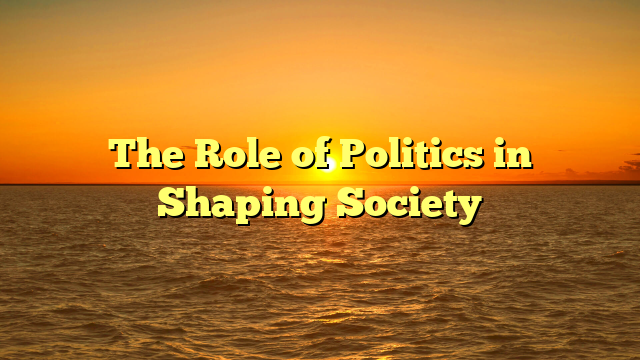
Politics is an essential part of every society, influencing the way people live, work, and interact with one another. At its core, politics is about decision-making and governance. It determines how resources are distributed, how laws are created, and how justice is maintained. Although politics can often be seen as controversial diponegoro4d or divisive, it plays a fundamental role in shaping the present and future of nations.
One of the main purposes of politics is to establish order. Without governance, society would fall into chaos, as individuals and groups would act solely based on personal interests. Through political systems, rules and laws are implemented to ensure fairness and stability. These systems, whether democratic, authoritarian, or somewhere in between, provide a framework for resolving disputes and managing societal issues. In democratic systems, for example, politics allows citizens to participate in decision-making, ensuring that diverse voices are represented.
Another significant aspect of politics is the distribution of resources. Governments are tasked with allocating funds for education, healthcare, infrastructure, and security. Political debates often arise around how these resources should be managed and who should benefit from them. The differences in political ideologies, such as conservatism, liberalism, or socialism, reflect varying opinions on the role of the state in economic and social life. These debates shape public policies that directly affect the lives of citizens.
Politics also plays a vital role in protecting rights and freedoms. Throughout history, political movements have fought for equality, justice, and human rights. From the abolition of slavery to the recognition of women’s suffrage, political action has been a driving force behind social progress. Today, political discussions often focus on issues such as climate change, gender equality, and digital privacy. These topics highlight the importance of political engagement in addressing global challenges.
However, politics is not without flaws. Corruption, partisanship, and misuse of power are recurring issues that undermine trust in political systems. When politicians prioritize personal gain over public service, citizens lose faith in governance. This disillusionment can lead to voter apathy, protests, or even social unrest. Therefore, transparency, accountability, and active civic participation are crucial for maintaining a healthy political environment.
In the modern world, media and technology have transformed the political landscape. Social media platforms provide citizens with new ways to engage in political discussions and express opinions. While this has increased accessibility, it has also fueled misinformation and polarization. Politicians now face the challenge of balancing the benefits of digital communication with the responsibility of maintaining truth and unity.
Ultimately, politics shapes the values, priorities, and direction of society. It reflects the collective will of the people, as well as the struggles between competing interests. While politics may sometimes appear frustrating or divisive, it remains a powerful tool for building a better future. Citizens play a vital role by staying informed, voting, and participating in public debates. Through active engagement, people can influence political decisions and ensure that governments remain accountable to those they serve.
In conclusion, politics is more than just elections or government policies—it is the foundation of social order, justice, and progress. By understanding its importance and participating responsibly, individuals can help shape a political system that represents fairness, equality, and shared prosperity for all.




